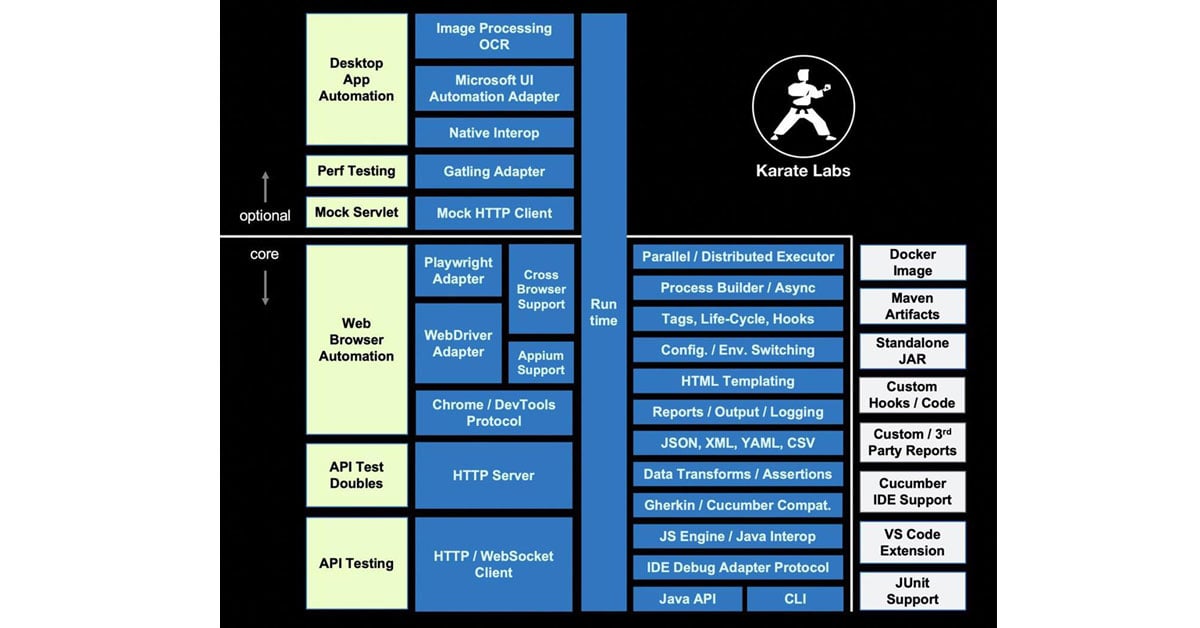 Image source: Canva
Image source: Canva
Today, APIs are used more than ever as they offer a logical contract of service between two applications. The Internet of Things (IoT) and online retail have increased the demand for web services, a type of API that communicates over the internet. This influx in demand for web services makes creating API testing crucial for ensuring the quality of your web services.
Improving Functionality With Web Services Testing
Web services testing entails evaluating an application programming interface to verify that it achieves the intended functionality, performance, reliability, and security. It is essential because it helps ensure your company's web services function correctly. Without web services testing, your customers may experience problems, or even worse, be exposed to security risks.
Effective Testing With Test Automation Framework
A framework for test automation is essential to creating an effective testing process. Test engineers are often asked to follow best practices and focus on creating test frameworks from scratch using long Java code and design patterns. However, if they follow these practices too closely, test automation frameworks can become bloated with unnecessary features that distract from the actual goal of testing — finding bugs in software so they can be fixed before they reach customers. Karate framework Founder, Peter Thomas, described evolving past over-engineered testing as a “mindset change.”
What Is a Karate Test Framework?
Karate test frameworks are essential testing tools because they help define and maintain the quality of software. These frameworks guide testing activities and produce a report describing how well the application has been tested. Gherkin syntax is used in a Karate test framework, which is language-neutral and easy for programmers and non-programmers to use when writing tests, allowing more time for exploratory testing or end-user scenario testing.
Karate is built on the behavior-driven development (BDD) syntax of Cucumber and uses the Gherkin language to express test scenarios, allowing us to write tests as Gherkin “.feature” files. Karate does not require us to add any new steps to fulfill our needs because it provides a mechanism for calling other feature files within a single file. This is how we can define our reusable utility functions, make calls, and assert responses to external APIs. Karate also allows for interoperability with Java classes, enabling the use of complex utilities that are easy to maintain.
Core Features of the Karate Framework
Karate is an open-source test automation framework that provides many features that other tools lack. Karate combines API test automation, performance testing (by integrating Gatling), mocks, and UI automation into a single, unified framework. It supports REST APIs (also known as representational state transfer), GraphQL, and simple object access protocol (SOAP) services. Karate has its assertions, which are extremely powerful and detailed built-in HTML reports. The Karate framework also provides in-built parallel test execution for speed.
Karate offers a variety of core features as well as optional features that can be easily integrated into the framework. Details on those features are pictured below.
Karate Map
 Image source: GitHub
Image source: GitHub
Karate supports several assertions for matching and filtering data, including equal to, not equal to, contains, contains only, contains any, match each for an array of objects, and deep assertions for nested payloads. It also supports schema validation and fuzzy matching using regular expressions. Fuzzy matching allows you to ignore some fields when comparing a full payload. Regular expressions can be used instead of equality matching, which is much more flexible. This is especially useful when validating auto-generated unique IDs or data/time formats.
10 Advantages of the Karate Framework
The Karate framework offers the following advantages:
- Does not require extensive coding skills as long as you can create a Karate with Maven or Karate with Gradle project
- Has multiple tests that can be annotated in the same JUnit 5 runner class
- Offers a runtime JavaScript function that has access to a utility object in a variable named “Karate”
- Users can call feature file A from feature file B, and all of the variables and methods defined in feature file A will be available in feature file B
- Has native support for JSON and can define JSON objects as feature files
- Utility functions can be written in both Java and JavaScript
- Several built-in assertions and validations are provided that can be used without writing code for validations or third-party library integrations
- Offers built-in parallel execution, reporting, and log management
- Complete performance testing can be performed, and existing tests can be reused
- UI, API, and performance test writing is supported in a single Karate test script
Karate offers a stand-alone, executable option for teams not specialized in Java. This is useful for writing and testing simple code without compiling it. A Java API is also available for those who prefer to programmatically integrate Karate and data assertion capabilities, enabling the interoperability of these tools.
Automatic testing is easy, but verifying that all the responses are as expected can be time-consuming. Automating HTTP calls and checking that the response status code is “200 - OK” is easy, but you need to write a substantial amount of code in other tools to verify that you have received all the expected data.
Karate is a powerful tool that makes web testing easier, and it can be used to assert numerous conditions about the state of the application being tested. This framework is simple and intuitive, which makes it easy to learn and quick to master. It provides a powerful toolkit for testing web applications and APIs, allowing you to easily evaluate your application's state in real time.
The Nisum Advantage for Businesses
Nisum has worked extensively with the Karate framework, providing QA services from highly skilled and enthusiastic members of our development team. Our in-house test automation platform accelerator offers businesses a complete automation testing solution to help achieve the following results:
- 30% faster time-to-market
- 60% reduction in bug fix time
- 70% reduction of project timelines
- 100% traceability from test coverage to requirements
We’ve created modular test suites and built-in reusable utility methods, DB mocking modules, seamless integration to CI/CD, insightful reporting, automation execution history, and test logs. We also have the ability to adapt our test automation platform to align with our clients’ ecosystems. Contact us today for a consultation on how Nisum can drive test automation success for your company.




